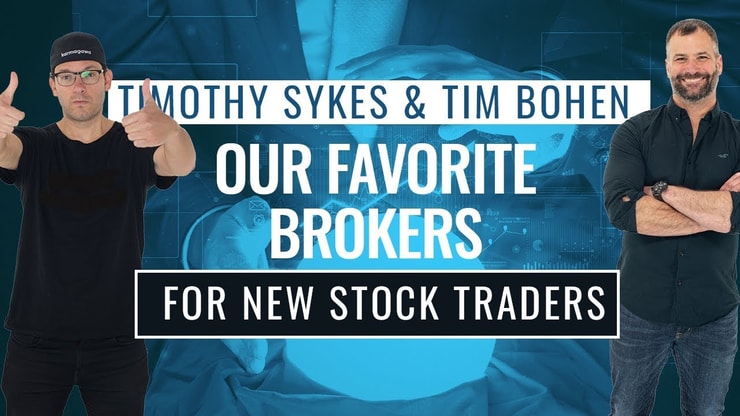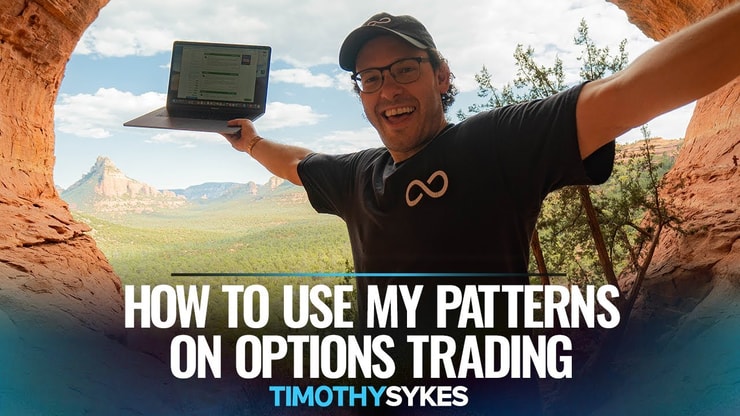If you want to know how to trade options on Questrade, you’re probably Canadian.
Most brokers I cover on my blog are U.S.-based. Some of them only accept U.S. residents for brokerage accounts. What happens if you live in Canada and you want to trade U.S. stocks? You’ll need to find a broker that accepts Canadian traders.
Questrade is a Canadian discount brokerage. It’s easy to sign up and start trading.
One of the most important things when trading is choosing the broker that’s right for YOU. What works for others might not work for you and vice versa. There’s no rule that says you have to marry your broker, and I encourage you to explore your options.
There’s only one rule — you’ve got to understand what your broker offers, which is why you’re here.
Read on for a deeper dive into Questrade’s features and how this broker can help you on your trading journey!
Table of Contents
Trading on Questrade

The first thing to know about trading on Questrade is that it’s a Canadian broker. This complicates things for U.S. citizens and Canadians living in the U.S.
Don’t blame Questrade, blame the SEC. Questrade allows Canadian traders access to the major U.S. exchanges, as well as Canadian exchanges. The SEC is very protective of the markets it regulates, and it doesn’t want U.S. traders getting too clever with their tax returns.
What do you get by being a Questrade user? Here are some of its best features:
- Desktop, web, and mobile trading platforms
- Wide asset variety
- Access to American and Canadian securities
- Curated research reports
- Real-time market scanners
- Educational videos and webinars
- Low trading fees
Looking for a U.S. broker? Check out my reviews of Fidelity, E-Trade, and Schwab.
Benefits of Trading Options Using Questrade
Questrade touts itself as an alternative broker to big Canadian banks. Why should you use it instead of larger Canadian brokers? There are several reasons why:
Easy Brokerage Transfer
It’s easy to get started with Questrade. They even give you a $150 CAD rebate for transfer fees!
Multiple Platform Choices
Casual users have different needs from advanced traders. Like most pro-level brokers, Questrade offers two trading platforms:
- Questrade Trading: This is the basic web-based trading platform. It offers simplified charting and watchlists for traders who value user experience over power. Questrade’s mobile app is a version of Questrade Trading scaled to fit phone screens.
- Questrade Edge: This is the broker’s advanced desktop trading platform, with a wide range of advanced market research tools. It’s fairly customizable, though not to the degree you’ll find on StocksToTrade, my favorite trading platform (and the one I helped design).
Give StocksToTrade a try today — a 14-day trial is only $7!
More Breaking News
- Bitmine Immersion Technologies Secures Strategic Edge with $14 Billion Crypto Holdings
- Marathon Digital’s Divergent Strategy Brings Market Challenges
- Red Cat Holdings Poised for Growth as Drone Orders Surge
- Hims & Hers Health Faces Legal Storm Amid FDA and Novo Nordisk Scrutiny
Various Tradable Assets
We’re here for options trading. But finding a broker that offers more is always a good thing. Questrade allows you to trade these assets:
- Stocks
- Options
- Mutual funds
- Bonds
- Precious metals
You can also trade foreign currencies on a separate, Questrade-affiliated platform.
Robust Trader Security
You want your broker to take your money seriously. These days, security features are essential. Questrade has two-factor authentication for customer logins, and biometric entry for its mobile app. In addition to regulator-mandated insurance, Questrade protects each account with an additional $10 million in private insurance.
Low Options Trading Fees
The base options trading commission is $9.95 CAD plus a $1 CAD per contract. But this gets cheaper when you subscribe to the Active Trader program.
There are two pricing plans: variable and fixed-rate. Variable has advantages in regular stock trading, but is a worse choice for options trading. Here’s how it breaks down:
- Variable: $6.95 CAD commission, $0.75 per contract fee
- Fixed-rate: $4.95 CAD commission, $0.75 per contract fee
Helpful Research Tools
Active Trader subscribers can access Questrade’s Intraday Trader. This is Questrade’s proprietary scanner and alerts software, powered by the algorithmic technical analysis services provider Recognia. Fidelity also uses Recognia.
Free Education Material
Questrade’s YouTube channel offers numerous educational videos. They provide answers to questions and cover common topics like the basics of trading options. The website also has a how-to section that contains answers to common questions.
If you want more in-depth material, Intraday Trader has an educational section as well.
Steps to Start Trading Options on Questrade

How do you start trading options on Questrade? Here’s a four-step guide:
1. Open a Questrade Account
The first thing to do is sign up for a Questrade account. Check that you fit the residency requirements — Questrade is mainly for Canadian traders, but some other residencies and citizenships also work. You can open multiple account types simultaneously, but make sure you get a self-directed trading account for trading options.
On Questrade, you can apply for options trading on account creation. You just need to click Yes in the ‘trading options’ section on your registration form. Doing this means you’ll have a Level 1 options trading account.
2. Log in to the Questrade App
Once you’re registered, log into your Questrade trading platform. Choose Questrade Trading or Questrade Edge, depending on your preferences. Fund your account.
Questrade accounts can be funded with both Canadian and U.S. dollars. This means you don’t have to convert currencies back and forth when trading.
3. Check Your Options Preferences
You can start trading options instantly if you applied during account creation. But if you didn’t, you can apply for it from the app. Click Account Management to find your options level. Then, click Change. Here, you can choose to upgrade or downgrade your options trading level.
Once you choose the new approval level, complete the provided options trading agreement. Approval usually takes one or two business days.
Option trading levels on Questrade range from 1 to 4 and work like other brokers. Inexperienced traders can only access the most basic options strategies. Experienced traders can use more advanced trading strategies. They can also trade more types of options.
More advanced strategies require a margin account and a minimum margin requirement in the account.
4. Start Trading Options
Once you’re approved for the option level you want, it’s time to start trading. Always follow my tips for trading in options:
- Don’t copy other traders’ options trades. Your goals and risk tolerance will differ from other traders, and so will your timing.
- Learn options strategies from experienced traders. Join online communities and share trading experiences with other traders. Don’t be afraid to ask even the most basic questions — we all start somewhere.
- Do your own research and make your own watchlists. You want to understand the thought — and chart — behind every potential trade.
- Record your trades for future review. Examine what went right and what needs improvement with each trade. That’s how you become a better trader.
Learning from experienced traders is one of the best ways to improve your skills. They’ll help you develop effective options trading strategies faster. Plus, you can learn various aspects of trading in options from them.
If you’re searching for a mentorship program, check out my former student Mark Croock’s Evolved Trader. He’s taken my penny stock strategies and applied them to options trading — making $3.9 million in career earnings in the process!
Here’s a sneak peek of Mark’s curriculum:





Leave a reply